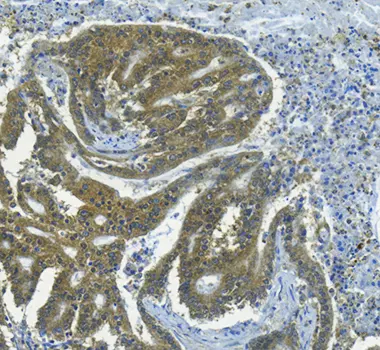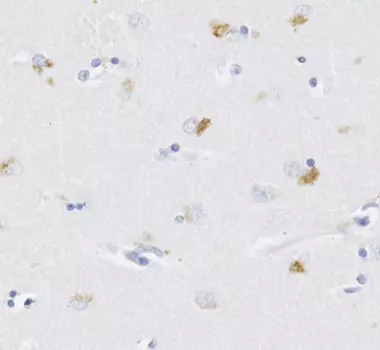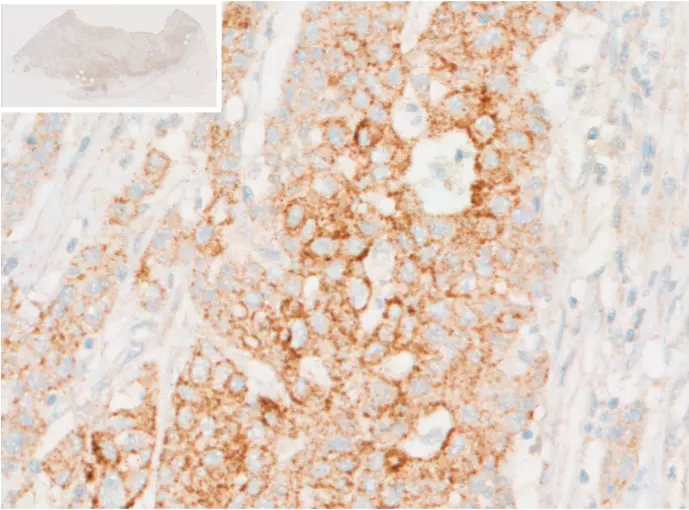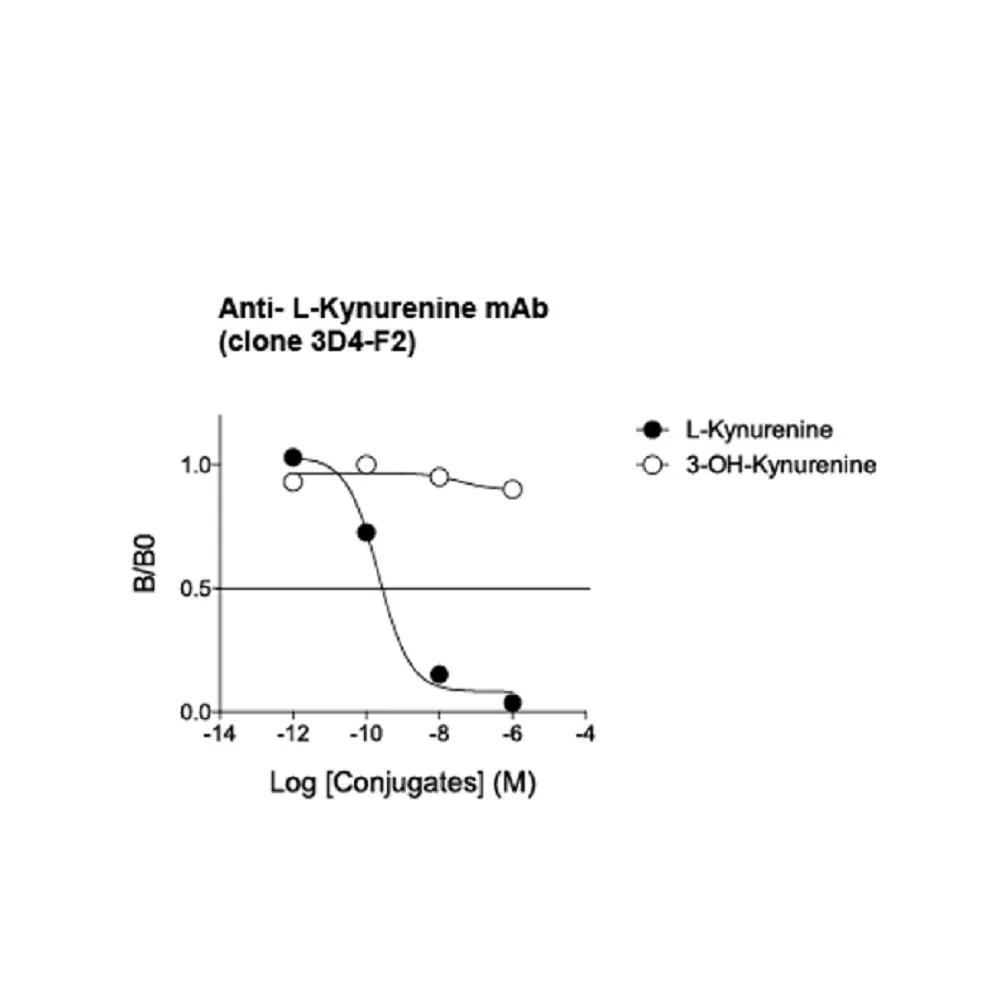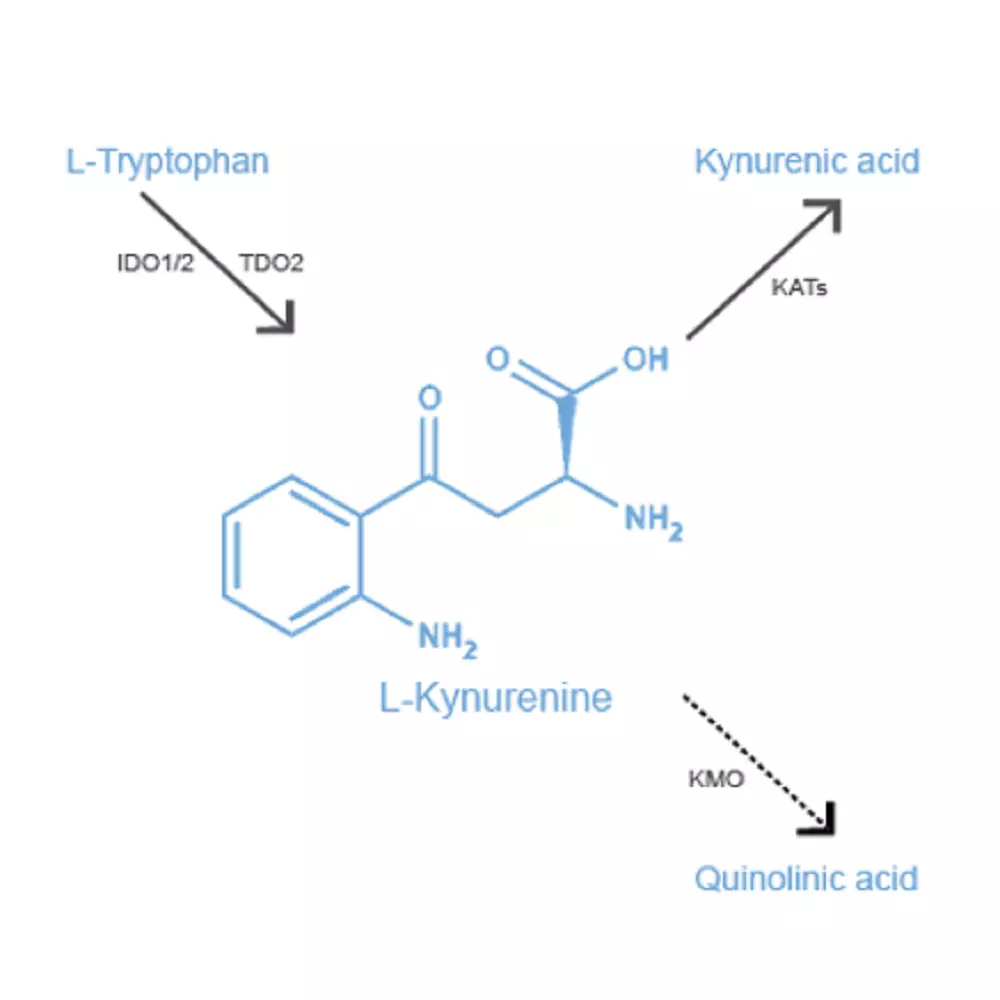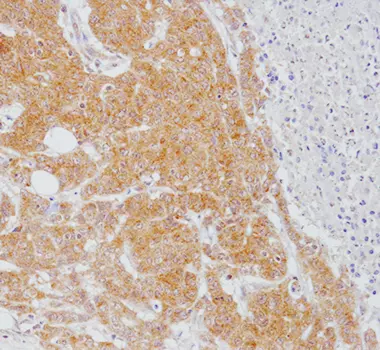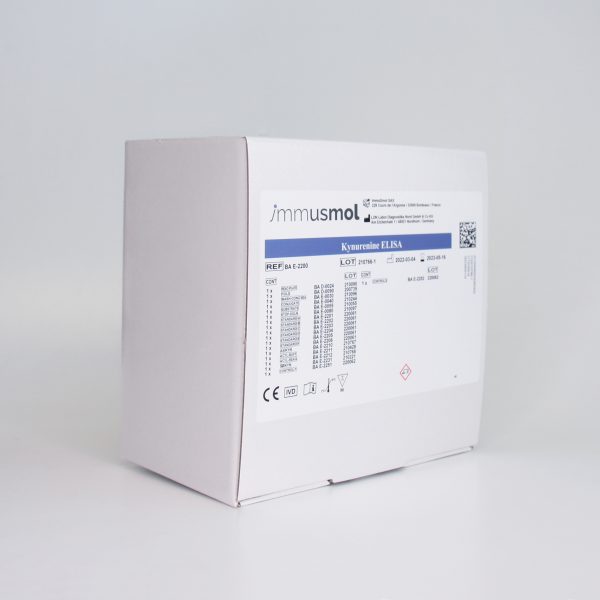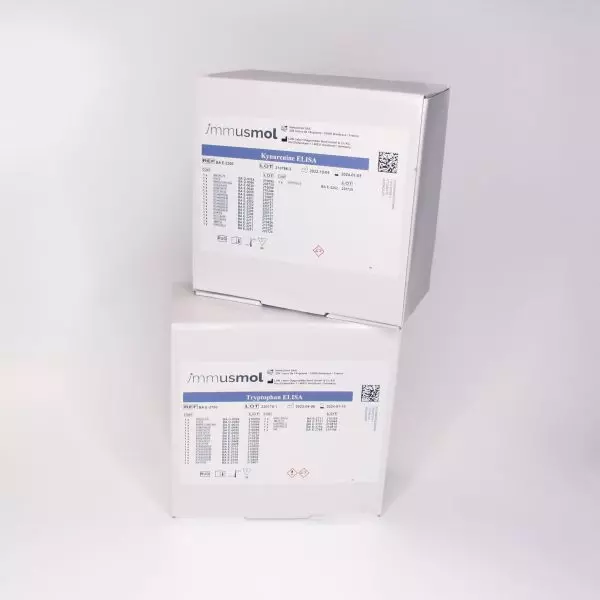L-Kynurenine Antibody – Mouse Monoclonal
Ref: IS003
Tryptophan metabolismMonoclonal AntibodiesICCIFIHCKynurenine pathway
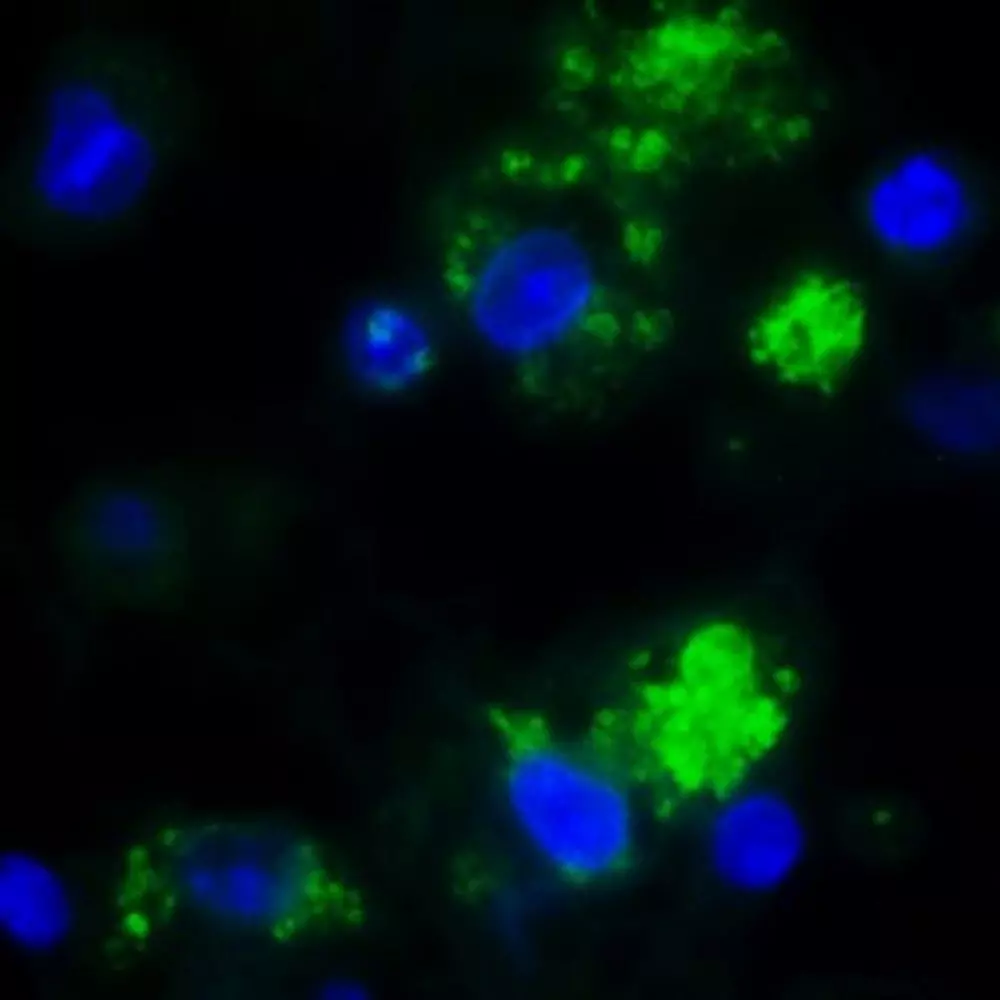 +
+L-Kynurenine visualization in human intestinal immune cells by IF
Immunofluorescence staining reveals L-Kynurenine accumulation in specific immune cells in human colon tissue. Paraffin-embedded tissue section was subjected to pH=6 antigen retrieval followed by overnight incubation with primary antibody (dilution 1/250). After incubation with Alexa-488 conjugated secondary Ab, epifluorescence microscopy (100X) was used to visualize IF staining.
DatasheetMSDS
Our anti-L-Kynurenine antibody IS1003 enabled to illustrate, for the first time, the presence of L-kynurenine in human brain and tumor samples by IHC and IF. This mouse monoclonal antibody can be used in combination with other primary antibodies to kynurenine metabolites (rabbit polyclonals available).
| Clonality | Monoclonal antibody (clone 3D4-F2) |
| Host | Mouse |
| Validated applications | IHC / IF |
| Reactivity | Reacts with all species |
| Format | 50µL |
| References | Cited in 10 papers |
| Size | 50µL |
|---|
449.00€
40 in stock
Worldwide shipping
They published with this product see papers
Product overview
| Product name | L-Kynurenine antibody |
| Synonyms | (S)-Kynurenine antibody
L-2-Amino-4-(2-aminophenyl)-4-oxobutanoic acid antibody Kynurenin antibody 3-Anthraniloyl-L-alanine antibody, |
| Immunogen | Conjugated L-Kynurenine |
| Isotype | IgG1 k chain |
| Clone | clone 3D4-F2 |
| Specificity | When tested in competitive ELISA, the anti-L-Kynurenine antibody did not show any significant cross reactivity with L-Tryptophan, 3-hydroxy-DL-Kynurenine, Kynurenic acid, Anthranilic acid or 3-hydroxyAnthranilic acid conjugates |
Storage
| Form | Liquid |
| Purity | Purified IgG |
| Concentration | 0,5mg/ml |
| Storage |
Store at +4°C for short term (1-2 months). Aliquot and store at -20°C for long term. Avoid repeated freeze / thaw cycles |
| Material safety datasheet | Download MSDS |
| Immunohistochemistry (IHC) | Dilute at 1:200-1:2000. Perform heat antigen retrieval (pH=6) before initiating IHC staining protocol on paraffin-embedded and frozen sections |
| Immunofluorescence (IF) | Dilute at 1:100-1:1000 on paraffin-embedded and frozen sections. Before staining, perform heat antigen retrieval |
| Comments | Optimal working dilutions must be determined by the end-user |
| Restrictions | For research use only |
Product citations
- The Aryl Hydrocarbon Receptor Controls IFNγ-Induced Immune Checkpoints PD-L1 and IDO via the JAK/STAT Pathway in Lung Adenocarcinoma
Check article
Authors : Snyder et al., BioRxiv
2024-08 - The dangerous “West Coast Swing” by hyperglycaemia and chronic stress in the mouse hippocampus: Role of kynurenine catabolism
Check the article
Authors : Gliozzi M et al., Pharmacological Research
2024-01 - Atheroma plaque microenvironment stimulates kynurenine production by macrophages to induce endothelial adhesion molecules in the context of atherogenesis
Check the article
Authors : Dongen et al., bioRxiv
2023-07 - Indoleamine 2,3-dioxygenase 1 activation in mature cDC1 promotes tolerogenic education of inflammatory cDC2 via metabolic communication
Check the article
Authors : Gargaro et al., Immunity
2022-06 - Tryptophan 2,3-dioxygenase in tumor cells is associated with resistance to immunotherapy in renal cell carcinoma
Check the article
Authors : Sumitomo et al., Cancer Science
2021-01 - Kynurenine signaling through the aryl hydrocarbon receptor maintains the undifferentiated state of human embryonic stem cells
Check the article
Authors : Yamamoto et al., Science signaling
2019-06 - Control of tumor-associated macrophages and T cells in glioblastoma via AHR and CD39
Check the article
Authors : Takenaka et al., Nature neuroscience
2019-04 - Activation of the Regulatory T-Cell/Indoleamine 2,3-Dioxygenase Axis Reduces Vascular Inflammation and Atherosclerosis in Hyperlipidemic Mice
Check the article
Authors : Forteza et al., Frontiers in immunology
2018-05 - Biological and clinical significance of tryptophan-catabolizing enzymes in cutaneous T-cell lymphomas
Check the article
Authors : Maliniemi et al., Oncoimmunology
2017-02 - Accumulation of an Endogenous Tryptophan-Derived Metabolite in Colorectal and Breast Cancers
Check the article
Authors : Puccetti et al., PloS one
2015-04
